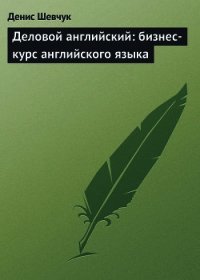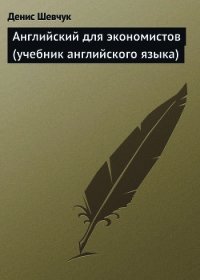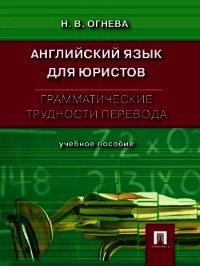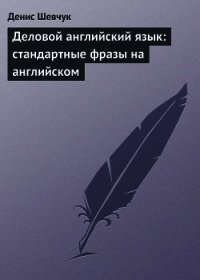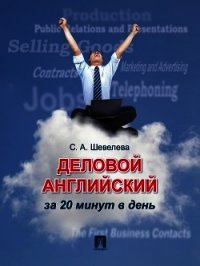Английский язык: самоучитель - Шевчук Денис Александрович (лучшие книги онлайн txt) 📗
Leeds Castle was built in the ninth century. It was the home of many kings and queens from Edward the First until Henry the Eighth.
This was Queen Catherine’s bathroom. As you can see, the bath was very simple. There was nothing special, just a few things. And this was Queen Catherine’s room. It looked the same in 1430. It was her bedroom. It was also her dining room. Perhaps there was a table here. It was also an audience or reception room, a room where people came to see her.
This was King Henry the Eighth’s dining room. There was a long table here. And these chairs were here in King Henry’s time. The table was from a French monastery. The drawers were for knives and forks.
She thinks that the history of Leeds Castle is very interesting. Many people lived here. They loved it – they all added something to it in their own century.
Are the sentences true or false?
Верны или не верны данные предложения?
1. Pat Carr shows Leeds Castle to its visitors.
2. Leeds Castle was built eleven centuries ago.
3. Only kings lived there in the castle.
4. Now you can see nothing in the castle.
5. In King Henry's room there was a table and some chairs.
6. Leeds Castle has a long and interesting history.
Lesson 9. When we were young

LEAD-IN
1. Answer the questions about yourself.
Напишите ответы на вопросы о себе.
1. Where do you live now? Where did you live twenty years ago?
2. Where did you go to school?
3. Did you do any sport when you were young?
4. What were your hobbies when you were young?
5. What was your father’s job?
6. Which sights did you visit when you were young?
7. Was life difficult when you were young?
8. Did you have a lot of friends?
9. Which institute did you go to?
10. What kind of books did you like reading?
2. Say what you did when you were fifteen, and what-not.
Скажите, чем Вы занимались, когда Вам было пятнадцать лет, а чем нет.
To study history, to smoke a little, to organize parties, to have various hobbies, to go to the swimming pool, to go to football matches, to be tired after school, to go water-skiing, to listen to awful music, to paint on the walls, to do athletics, to ride (rode) a bicycle, to do photography, to play hockey, to contact with different people, to enjoy life.
3. Make up correct sentences.
Составьте предложения из данных слов.
1. did/we/a/house/furnished/not/rent.
.....................................................................................
2. visited/castle/an/father/old/their/year/last.
......................................................................................
3. anything/was/in/magazine/there/interesting/this?
......................................................................................
4. building/they/enjoy/a/cottage/did/new/not.
.....................................................................................
5. that/the/organized/department/yesterday/clients/meeting/a/in.
.....................................................................................
6. few/audience/there/guests/in/room/were/the.
.......................................................................................
7. they/why/prepare/post/immediately/did/the?
.....................................................................................
8. any/into/tea/add/not/she/did/the/milk.
......................................................................................
4. Say what you remember about your childhood: where you lived, what you liked, what games you played, where you were on holiday, etc. Use the verbs given.
Скажите, что Вы помните о своем детстве: где Вы жили и что любили, в какие игры играли и где побывали на каникулах. Используйте данные глаголы.
Played, lived, stayed, studied, prepared, liked, went, saw, visited, enjoyed, got, had, used, improved, relaxed, moved, helped, came, read, took, did, began.
FOCUS ON VOCABULARY
Активный словарь
Nouns
1. baby – малыш, ребенок
2. date – дата
Date of birth – дата рождения
Out of date – вышедший из моды
Up to date – современный
3. news – новости (всегда в ед.ч.)
What is the news? – Какие новости?
4. twins – близнецы
5. congratulations – поздравления
6. diploma – диплом
Diploma in architecture – диплом архитектора
7. age – возраст
8. choice – выбор
9. electricity – электричество
10. farm – ферма
11. grade – класс (в школе)
12. part – часть
13. subject – школьный предмет
14. oven – духовой шкаф
15. selection – выбор
16. waiter – официант
17. gravy – подлива
18. mussel – мидия
19. mother-in-law – теща, свекровь
20. roast – жаркое
21. herbs – целебные травы
22. meal – принятие пищи
23. nut – орех
24. pepper – перец
25. sauce – соус
25. peas – горошины
26. menu – меню
27. bill – счет
28. mushroom – гриб
29. oil – растительное масло
30. dessert – десерт
Adjectives
1. tasty – вкусный
2. spicy – острый, со специями
3. delicious – очень вкусный, деликатесный
4. hungry – голодный
5. thirsty – томимый жаждой
6. fresh – свежий
7. dry – сухой
8. flat – плоский
9. mixed – смешанный
10. rare – редкий
11. plain – простой
12. square – квадратный
13. rewarding – стоящий
Verbs
1. to tell smb. – сказать кому-либо
2. to develop – развивать(ся)
3. to bring – приносить
4. to marinate – мариновать
5. to order – заказывать, приказывать
6. to pass – передавать
7. to serve – обслуживать
8. to ask – спрашивать
Adverbs
1. enough – достаточно
2. exactly – точно
3. extremely – чрезвычайно
Word Combinations
1. to be born – быть рожденным
I was born in 1974. – Я родился в 1974.
2. the same – тот же самый, одинаковый
3. business management – управление делами
4. primary school – начальная школа
5. secondary school – средняя школа
6. tea boy – посыльный
7. application form – анкета поступающего на работу
8. something/anything else – что-нибудь еще

2. Fill in the missing letters.
Вставьте пропущенные буквы.
Ap...l...cation form, d...ss...rt, m...shro...m, pl...in, ro...st, to s...rve, to m...rina...e, muss...ls, s...lect...on, to d...vel...p, s...u...e, h...rbs, ...ven, pr...m...ry sc...ool, con...rat...lations, el...ctric...ty, se...ond...ry s...hool, e...trem...ly, s...b...ect, a...e, re...a...ding, s...ua...e, men..., me...l, to o...der.
3. Make word combinations.
Составьте словосочетания.

4. Give explanation. What do these words and word combinations mean?
Объясните значения данных слов и словосочетаний.
Example: primary school
